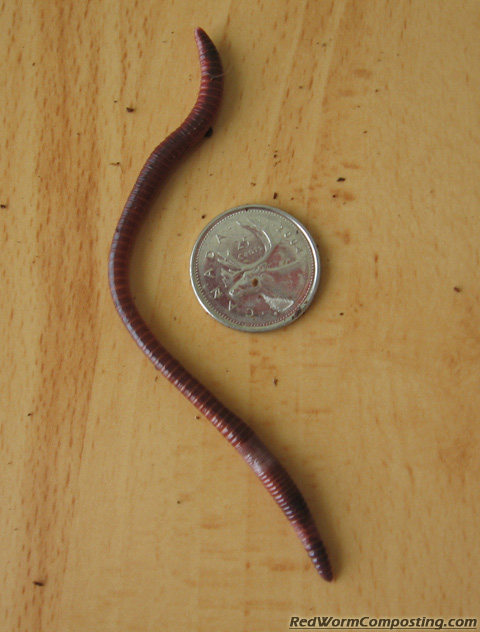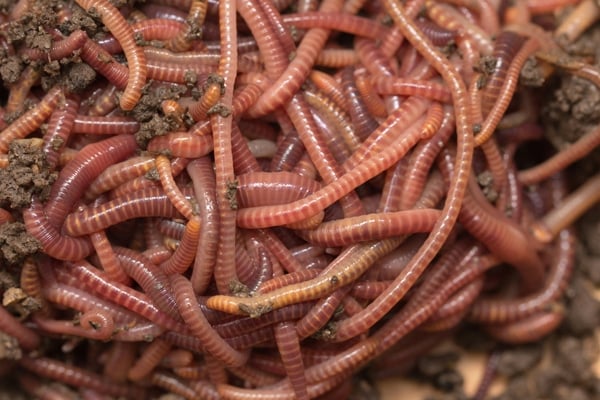Red Wiggler Express: A Reliable Name for Worms and Supplies
Red Wiggler Express: A Reliable Name for Worms and Supplies
Blog Article
Red Wigglers: The Unsung Heroes of Organic Waste Recycling
Red wigglers, or Eisenia fetida, offer as essential agents in the natural waste recycling process, changing discarded materials right into valuable vermicompost. As the globe significantly looks for remedies to battle waste accumulation and boost farming productivity, understanding the duty of these worms comes to be essential.
What Are Red Wigglers?
The remarkable strength of red wigglers, clinically referred to as Eisenia fetida, highlights their critical function in natural waste recycling. These little, reddish-brown earthworms are generally located in decaying natural issue, such as compost heap and manure stacks. Lake Hickory Bait. Unlike other earthworm types, red wigglers thrive in nutrient-rich atmospheres and are highly reliable at damaging down organic products, making them necessary for vermicomposting

(Red Wiggler Express)Along with their function in waste decrease, red wigglers contribute to soil wellness by boosting soil framework and oygenation through their tunneling activities (Lake Hickory Bait). Their visibility in composting systems not just enhances decay prices however additionally promotes a lasting technique to waste administration, showing their significance in environmental preservation initiatives
Advantages of Composting With Worms
Composting with worms, specifically red wigglers, uses countless benefits that enhance both waste management and soil health. First, these worms efficiently break down organic waste, converting it into nutrient-rich vermicompost that enriches dirt. This process accelerates decay, permitting a quicker recycling of kitchen area scraps and other natural products compared to conventional composting methods.
Furthermore, the vermicompost created by red wigglers is bristling with advantageous bacteria, which help enhance soil framework, aeration, and moisture retention. This enhances the total health of plants, advertising strenuous development and enhanced yields in gardens and farming setups. The use of worms in composting minimizes the manufacturing of greenhouse gases, such as methane, contributing to a much more lasting waste administration system.

How to Begin Vermicomposting
Developing a vermicomposting system is an uncomplicated process that can generate significant benefits for both waste management and soil enrichment. To start, select an appropriate container, such as a plastic container or wood box, Get the facts with adequate ventilation holes to make sure appropriate air movement. The measurements must ideally be around 2 feet by 3 feet, allowing sufficient space for the worms to flourish.
Next, prepare bedding material, which can consist of shredded newspaper, cardboard, or coconut coir. This bedding needs to be moistened to develop a suitable habitat for the worms. Once the bed linen remains in area, present red wigglers (Eisenia fetida) right into the bin, generally around one pound of worms for every square foot of surface area.
Complying with the placement of worms, include natural waste, such as fruit and veggie scraps, coffee premises, and crushed eggshells. With these actions, you will properly launch a vermicomposting system that adds to sustainable waste management and improves your dirt.
Maintaining a Healthy And Balanced Worm Bin
(Red Wiggler Express)Keeping a worm container prospering requires regular focus and like make sure the health and wellness of the red wigglers and the efficiency of the composting process. Appropriate maintenance starts with keeping an eye on the dampness levels; the container must perspire yet not soaked. An excellent guideline is to keep a consistency similar to a wrung-out sponge.
Carefully blending the bed linens and food scraps every few weeks stops compaction and ensures that all worms have accessibility to oxygen. Additionally, it is important to feed the worms properly.
Temperature policy is one more crucial facet. Red wigglers prosper in an array of 55 to 77 levels Fahrenheit. If the container becomes as well hot or chilly, the worms might come to be worried - Lake Hickory Bait. Regularly check for signs of health, such as worm population development and the visibility of healthy and balanced spreadings. By vigilantly managing these elements, one can maintain a durable and effective worm container.
Effect on Sustainable Living
The successful upkeep of a worm bin not only profits the health of red wigglers but also adds significantly to lasting living techniques. By reusing natural waste, such as kitchen area scraps and yard debris, red wigglers aid divert substantial quantities of product from landfills. This decrease in waste not only lowers greenhouse gas exhausts however also decreases the ecological concern linked with waste monitoring.
In addition, the spreadings produced by red wigglers offer as a nutrient-rich organic plant food, improving soil wellness and promoting plant development. This natural alternative to chemical plant foods supports lasting agriculture and horticulture practices, decreasing dependence on synthetic inputs that can damage environments. Additionally, worm composting promotes awareness of waste monitoring, encouraging people and communities to take on more sustainable behaviors.

Conclusion
In summary, red wigglers serve as important contributors to natural waste reusing with their reliable disintegration of natural products. By integrating vermicomposting right into waste monitoring techniques, individuals and neighborhoods can considerably decrease waste while advertising ecological sustainability.
Report this page